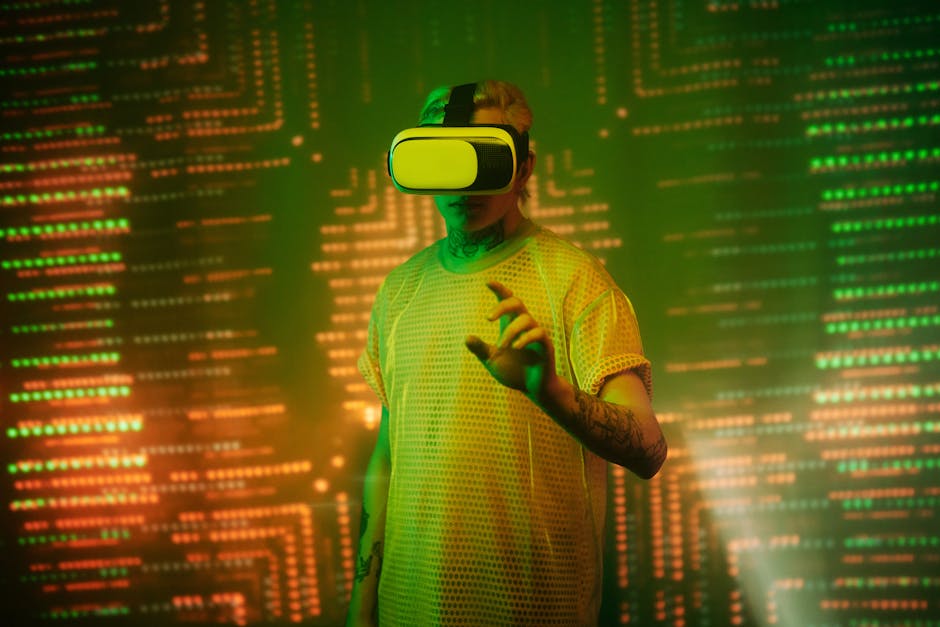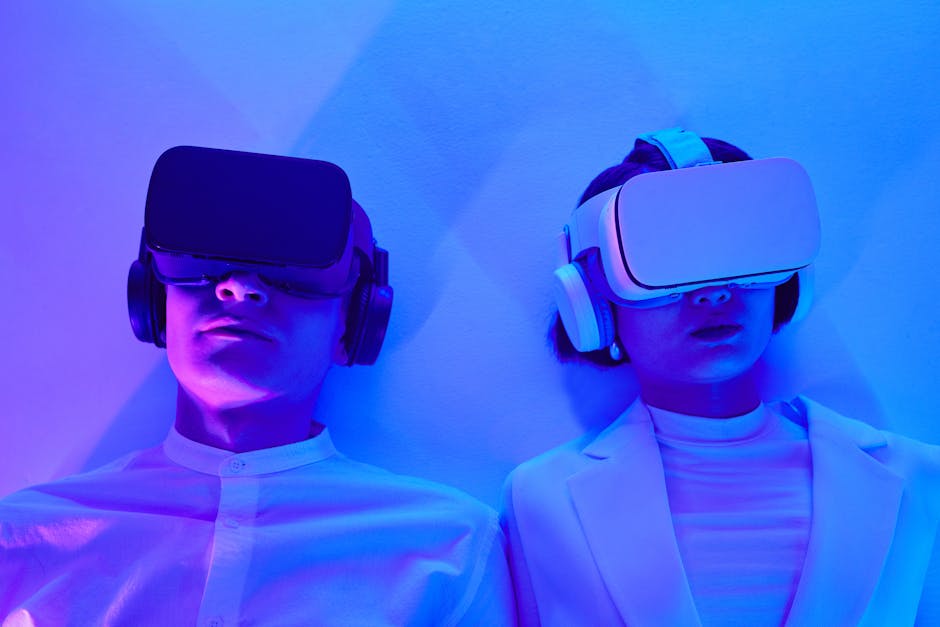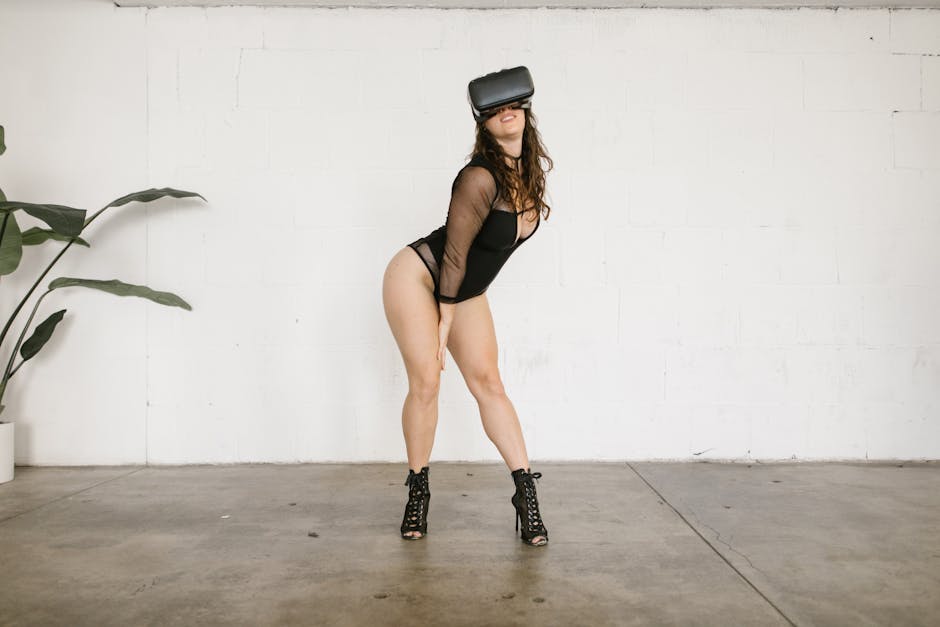The Future of Hybrid Entertainment Platforms
Entertainment has always been a significant aspect of human life, providing a means of escape, enjoyment, and cultural expression. With the rapid advancements in technology, entertainment platforms have evolved to offer a diverse range of content accessible anytime, anywhere. The emergence of hybrid entertainment platforms, which combine traditional and digital forms of entertainment, is revolutionizing the industry and shaping the future of how we consume media. In this article, we will delve into the world of hybrid entertainment platforms, exploring their impact, potential, and what lies ahead in this ever-evolving landscape.
The Evolution of Entertainment

Entertainment has come a long way from traditional forms such as theater, radio, and television to the digital age of streaming services, social media, and virtual reality. The shift towards digital platforms has democratized access to content, allowing creators to reach a global audience instantly. Hybrid entertainment platforms build upon this foundation by integrating various forms of media to offer a more immersive and interactive experience for users.
One of the key drivers of this evolution is the convergence of technology, content, and distribution channels. With the rise of smartphones, smart TVs, and high-speed internet, consumers now have a plethora of options at their fingertips. Hybrid entertainment platforms leverage this connectivity to seamlessly blend live events, social media interactions, gaming, and on-demand content, creating a dynamic and engaging entertainment ecosystem.
As we look towards the future, the lines between traditional and digital entertainment will continue to blur, giving rise to new forms of storytelling, interactivity, and community engagement. The next section will explore some of the key trends shaping the future of hybrid entertainment platforms.
Immersive Experiences

One of the defining features of hybrid entertainment platforms is their ability to create immersive experiences that transcend traditional boundaries. Virtual reality (VR) and augmented reality (AR) technologies are at the forefront of this shift, allowing users to step into virtual worlds, interact with characters, and participate in live events in real-time.
For example, a music concert hosted on a hybrid platform could enable fans to attend the show virtually, interact with other attendees through avatars, and even meet the artist backstage for a personalized experience. Similarly, sports events can be enhanced with AR overlays that provide real-time statistics, player profiles, and interactive challenges for viewers at home.
Immersive experiences are not limited to entertainment alone. Hybrid platforms are also being used in education, training, and healthcare to simulate real-world scenarios, enhance learning outcomes, and improve patient care. The potential for immersive technologies to transform various industries is immense, opening up new possibilities for collaboration, creativity, and engagement.
Social Integration

Another key aspect of hybrid entertainment platforms is their focus on social integration, fostering communities of like-minded individuals who share a passion for a particular form of entertainment. Social media plays a crucial role in this ecosystem, enabling users to connect with friends, share experiences, and discover new content through recommendations and collaborations.
Platforms like Twitch, Discord, and YouTube have democratized the creation and consumption of content, allowing users to become creators in their own right and engage with audiences in real-time. Live streaming, in particular, has gained popularity as a way to experience events, gameplay, and performances with a sense of shared excitement and camaraderie.
With the rise of virtual communities and social influencers, hybrid entertainment platforms are redefining the relationship between creators and audiences, blurring the lines between fan and celebrity. Brands are also taking notice of this trend, partnering with influencers and content creators to reach a more engaged and diverse audience through authentic and relatable content.
Personalization and Recommendation

Personalization and recommendation algorithms are driving the success of hybrid entertainment platforms by tailoring content to individual preferences and behaviors. By analyzing user data such as viewing habits, interactions, and feedback, platforms can offer personalized recommendations, curated playlists, and targeted ads that enhance the user experience.
For example, streaming services like Netflix and Spotify use algorithms to suggest movies, TV shows, and music based on a user’s viewing history, genre preferences, and ratings. This level of personalization not only keeps users engaged but also introduces them to new content they may not have discovered on their own.
Hybrid entertainment platforms are also exploring new ways to engage users through interactive storytelling, gamification, and user-generated content. By involving users in the creation process, platforms can foster a sense of ownership and community, leading to increased loyalty and engagement over time.
Emerging Technologies
The future of hybrid entertainment platforms is closely tied to the development of emerging technologies such as artificial intelligence, blockchain, and 5G connectivity. These technologies are poised to revolutionize how content is created, distributed, and consumed, opening up new opportunities for innovation and growth.
Artificial intelligence (AI) is being used to automate content creation, personalize recommendations, and enhance user experiences through chatbots and virtual assistants. AI-powered tools can analyze vast amounts of data in real-time, enabling platforms to identify trends, predict user behavior, and optimize content delivery for maximum impact.
Blockchain technology is transforming how content creators are rewarded for their work by enabling transparent, secure, and decentralized payment systems. By using smart contracts and digital tokens, creators can monetize their content directly, bypassing traditional intermediaries and retaining more control over their intellectual property.
5G connectivity is revolutionizing the way we access and consume content by offering faster speeds, lower latency, and greater bandwidth for streaming high-quality video, virtual reality, and augmented reality experiences. With 5G, users can enjoy seamless connectivity across devices, enabling them to engage with content in ways that were previously not possible.
Regulatory Challenges
As hybrid entertainment platforms continue to grow in popularity and influence, they are also facing regulatory challenges related to data privacy, content moderation, and intellectual property rights. Governments around the world are grappling with how to regulate these platforms effectively while balancing the need for innovation and free expression.
One of the key issues facing hybrid entertainment platforms is the protection of user data and privacy. With the increasing collection and use of personal information for targeted advertising and content recommendations, users are becoming more aware of the risks posed by data breaches, identity theft, and surveillance. Regulators are enacting laws such as the General Data Protection Regulation (GDPR) in Europe and the California Consumer Privacy Act (CCPA) in the United States to safeguard user data and hold platforms accountable for how they handle it.
Content moderation is another contentious issue for hybrid entertainment platforms, especially when it comes to harmful or illegal content, hate speech, and misinformation. Platforms are under pressure to enforce community guidelines, remove objectionable content, and prevent the spread of harmful narratives without infringing on freedom of speech or creative expression. The debate around content moderation is ongoing, with stakeholders from all sides advocating for a balance between safety, autonomy, and diversity of voices.
Intellectual property rights are also a concern for content creators and platforms alike, as the digital landscape makes it easier for content to be copied, shared, and monetized without permission. Copyright infringement, piracy, and plagiarism pose significant challenges for creators seeking to protect their work and earn a living from their art. Platforms are exploring new ways to combat piracy through content ID systems, licensing agreements, and digital rights management tools that enable creators to enforce their rights and receive fair compensation for their work.
The Future of Hybrid Entertainment Platforms: Opportunities and Challenges
As we look towards the future of hybrid entertainment platforms, it is clear that the opportunities for growth, innovation, and creativity are vast. By leveraging immersive technologies, social integration, personalization, and emerging technologies, platforms can create unique and engaging experiences that resonate with users on a deeper level.
However, with these opportunities come challenges that must be addressed to ensure a safe, ethical, and inclusive entertainment ecosystem. Regulatory compliance, data privacy, content moderation, and intellectual property rights are just a few of the issues that platforms will need to navigate as they continue to evolve and expand their reach.
Ultimately, the future of hybrid entertainment platforms lies in their ability to adapt to changing consumer preferences, technological advancements, and regulatory landscapes. By staying agile, responsive, and customer-centric, platforms can continue to push the boundaries of what is possible in the world of entertainment and deliver experiences that captivate, inspire, and connect us in ways we never thought possible.
Conclusion
To wrap things up, the future of hybrid entertainment platforms is a dynamic and ever-changing landscape that is shaping how we consume, create, and interact with media. From immersive experiences and social integration to personalization and emerging technologies, these platforms are redefining the boundaries of entertainment and opening up new possibilities for storytelling, engagement, and community building.
As we navigate the opportunities and challenges ahead, it is essential to keep in mind the importance of ethical practices, user privacy, and creative expression in the evolving ecosystem of hybrid entertainment platforms. By working together to find common ground, respect diverse perspectives, and innovate responsibly, we can build a future where entertainment is not just a passive experience but a transformative journey that enriches our lives and connects us in meaningful ways.




